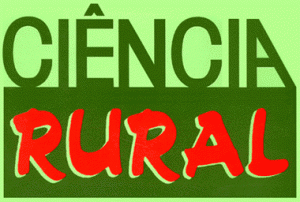Maria Luiza De Grandi, journalist, Ciência Rural, Santa Maria RS, Brazil.
Karine Lopes, research, Universidade Federal de Jataí (UFJ), Jataí, GO, Brasil.
 The search for ecological solutions to help restore degraded areas has gained prominence in various scientific studies. An innovative study conducted at the Universidade Federal de Jataí (UFJ) in partnership with the Universidade Federal de Rondonópolis (UFR) has made significant advances in this field, using biodegradable capsules to improve the germination of Cerrado species’ seeds. The motivation for the research arose from the need to reduce the environmental impact of traditional seed dispersal methods, which often rely on synthetic materials harmful to nature.
The search for ecological solutions to help restore degraded areas has gained prominence in various scientific studies. An innovative study conducted at the Universidade Federal de Jataí (UFJ) in partnership with the Universidade Federal de Rondonópolis (UFR) has made significant advances in this field, using biodegradable capsules to improve the germination of Cerrado species’ seeds. The motivation for the research arose from the need to reduce the environmental impact of traditional seed dispersal methods, which often rely on synthetic materials harmful to nature.
The article Biodegradable Capsules Can Enhance the Germination of Forest Species Seeds from the Cerrado was published in the journal Ciência Rural (vol. 55, no. 1, 2025) and analyzed the germination rate of seeds from three native Cerrado species: baru, angico-branco, and tamboril, when encapsulated in biodegradable capsules. The experiment was divided into two groups: one with encapsulated seeds and another with seeds dispersed directly on the soil. In both groups, the seeds belonged to native tree species of the Cerrado, with the biodegradable capsules produced from sustainable materials such as egg cartons and corn starch. The use of drones for seed dispersal was a key difference, allowing hard-to-reach areas to be accessed more quickly and efficiently.
In terms of analysis, the research used the SISVAR software to compare the data, applying statistical tests to ensure the reliability of the results. The choice of species analyzed was strategic, as all of them are crucial for the recovery of the Cerrado biome, which is constantly threatened by human activity. The results showed a germination rate of 97% for the baru, 42% for the angico-branco, and 12% for the tamboril, significantly higher than the rates observed in the control experiment, which did not use biodegradable capsules. In the case of baru, for instance, the germination rate was only 15% without the use of capsules. These data indicate that biodegradable capsules are an effective tool for improving seed germination, contributing to the restoration of native Cerrado vegetation.
“This research presents technology and innovation in the field of ecological restoration, offering a practical, accessible, and efficient method for seed dispersal. The use of biodegradable capsules facilitates large-scale planning, reduces operational costs, and improves germination rates, making the restoration of degraded areas more feasible and sustainable,” explains Karine Lopes, one of the authors of the article.
The results obtained can be directly applied to ecological restoration programs, especially in hard-to-reach areas such as remote and high-altitude locations. Furthermore, the use of biodegradable capsules can optimize reforestation and degraded area recovery work, reducing environmental impact and operational costs. The combination of drones with biodegradable capsules offers an accessible, effective, and sustainable solution, aligning technological innovation with responsible environmental practices.
To read the article, access
LOPES, K., et al. Biodegradable capsules may increase the seed germination of forest species from the Cerrado. Ciência Rural [online]. 2025, vol. 55, no. 1, e20220664 [viewed 7 May 2025]. https://doi.org/10.1590/0103-8478cr20220664. Available from: https://www.scielo.br/j/cr/a/9fT5WKKn6SPZ4DxYJPC8YKh/
External links
Ciência Rural – Social Media: X | Facebook | Instagram
Como citar este post [ISO 690/2010]:



















Recent Comments